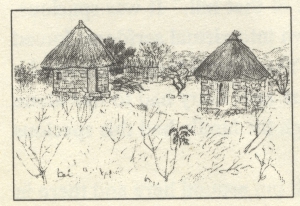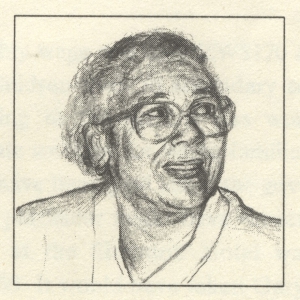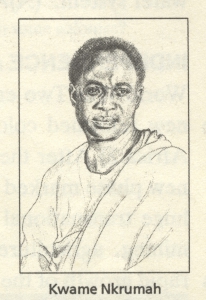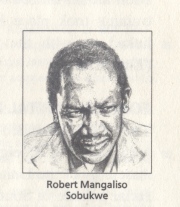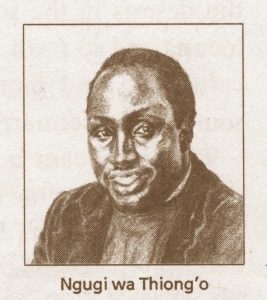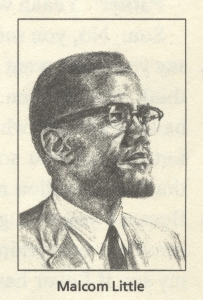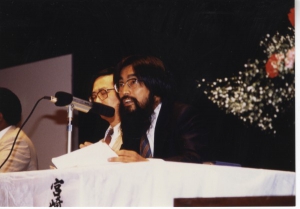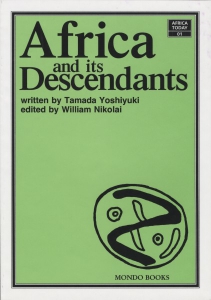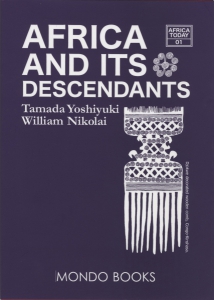Africa and Its Descendants – Africa Today Series 01
概要
英文の著書Africa and its Descendants(『アフリカとその末裔たち』)です。大学の英語の授業で使いました。
アフリカ人とアフリカ系米国人の歴史を虐げられた側から捉え直した英文書で、一般教養の英語の授業で使用中で、アフリカとアフロ・アメリカの歴史を繋いで日本人が英語で書いたのは初めてだと思います。
1章では、西洋人が豊かなアフリカ人社会を破壊してきた過程を、奴隷貿易による資本の蓄積→欧州の産業革命→植民地争奪戦→世界大戦→新植民地化と辿っています。
2章では南アフリカの植民地化の過程と現状を詳説し、
3章では奴隷貿易→南北戦争→公民権運動を軸に、アフリカ系アメリカ人の歴史を概観しました。
本文
①Prefaceと②目次と③Bibliographyです。↓
①<Preface>
Preface Our mind’s eye
In 1992 when I was staying in Harare, Zimbabwe, I felt suffocated all the time, maybe because of subconscious feelings of guilt; I had come to realize that we are on the side of the robber in the world. The reality I faced was overwhelming; the gap between the rich and the poor was far more tremendous than I had imagined. I remember clearly how relieved I felt, when we dropped in to Paris on our way back home, and briefly benefited from its many comforts.
I visited Africa as a research associate of the University of Zimbabwe. We rented a house near the University for 3E100,000 per month. The sum was about 800 US dollars (US$) and about 4,000 Zimbabwe dollars (ZW$). The house lot was about 1,600 square meters in area.
I met Mr. Garikayi Mhoyo there. He is a Shona, which is the majority ethnic group. He was hired as a 'garden boy,’ an ordinary domestic worker, by an elderly white woman. We became close friends. I called him Gary and he called me Yoshi. I found that he lived alone, except when his family came to stay with him during the school holidays. Our family came to spend much time with his. Our children played with his children all day long. My wife asked his wife to be a model for her paintings. They had no common languages, but enjoying their time together was no problem.
I was told that his monthly wage was only ZW$170 and that most people could not afford to send their children even to secondary school. The basketball with which they enjoyed playing in the garden was worth ZW$199! I heard the minimum wage for domestic workers for white families was ZW$130 per month. Some workers might even have been paid less if the government had not controlled wages; women workers in particular might have earned significantly less. I found later that the room rate at the Sheraton Hotel was about US$150 a night, equivalent to about ZW$750. It would have taken Gary more than four months to earn enough money to stay only one night at the Sheraton Hotel!
One day we visited his village to see his children who had already returned to school. His homestead was at the foot of a hill on a plateau. He pointed at the hill and explained, “That is our land, right up the flank of that hill." It was spacious, indeed. I felt stunned to find that he had been thrown into virtual serfdom, forced by economic necessity to work as a cheap labourer. Yet, Gary’s forefathers lived a self-sufficient, rich life, in peace, just a hundred years ago. Gary had to live alone in the city a whole year, apart from his family, though his family had this spacious land in their village. That was the reality.
家族の住むムレワのゲイリーの家
At the University I was asked whether “ninjas" still ran around here and there in towns in Japan. Those inane questions were posed by students selected from throughout the whole country for admission to the only university in Zimbabwe. Yet, we saw many Japanese cars running on the streets in Harare. Japan was familiar yet strange and unknown. Likewise, in Japan, Africa is also misregarded through so many negative images. Phrases like “primitive and savage" and “the Dark Continent" are still used often and can be seen to stem from a pervasive Western bias. Under these conditions of ignorance we cannot expect to achieve mutual understanding.
I hope this introductory text to African and African-American history will be of some help to those who are interested in Africa and its descendants.
I began to do African studies by chance, in the course of my inquiry I was drawn deeply into the stories of people who had managed to live decent lives in spite of severe oppression. Some were killed by the system, but their souls are living on. It depends on “our mind’s eye" whether we can understand them or not. What we know is nothing, as compared with what we don’t know. It is with our “mind’s eye" that we can understand what we don’t know, when we happen to face it.
I met some Africans who were fighting against oppression inside and outside their countries. In Canada I met Cecil Anthony Abrahams, a South African scholar, and Blanche La Guma, wife of a South African writer. They were both in exile then. The times are changing; now these people are back in South Africa.
ブランシさん
I would like to dedicate this book to Alex La Guma who died in exile in 1985, and to Blanche, and Cecil, hoping that their newly reborn country might lead Africa and the world to a better situation.
This text is based on The Struggle for Africa and “The Glory of Negro History." The former book, originally published in Swedish, was an introduction to Africa for young people and the latter essay was written in the 1950’s by Langston Hughes, an African-American poet. The poet recorded the text with his own reading and some music. I am thankful to have benefited both intellectually and spiritually from these works.
Lastly, I wish to thank both William Nikolai, my copy editor, and Mondo Books, my publisher.
In Miyazaki, Japan Yoshi
②<目次>
Chapter 1: The Colonization of Africa
PRECOLONIAL AFRICA
→THE FIRST COLONIALISTS
→MONOPOLY CAPITALISM AND IMPERIALISM
→THE COLONIAL DIVISION OF AFRICA
→COLONIALISM
→INDEPENDENCE AND NEO-COLONIALISM
ガーナの初代首相クワメ・エンクルマ
Chapter 2: The Struggle for South Africa
THE COLONIZATION OF SOUTH AFRICA
→THE GROWTH OF MINING CAPITAL
→THE CONFLICT BETWEEN THE BRITISH AND THE BOERS
→THE UNION OF SOUTH AFRICA AND RESERVES
→AFRICAN RESISTANCE
→THE 1948 APARTHEID REGIME
→THE POLICIES OF APARTHEID
→MASS MOBILIZATION AND OPPRESSION
→THE ARMED STRUGGLE
→FOREIGN CAPITAL IN SOUTH AFRICA
→SOUTH AFRICAN IMPERIALISM
→THE BLACK CONSCIOUSNESS MOVEMENT
→BOTHA, DEKLERK, AND MANDELA
ロバート・ソブクエ
ケニアのグギさん
Chapter 3: A Short History of Black Americans
SLAVE TRADE
→SLAVERY
→EMANCIPATION
→REACTION
→BLACK POWER
→STRUGGLE CONTINUES
マルコム・リトル
③<Bibliography>
1. Articles
Langston Hughes, “The Glory of Negro History" in The Langston Hughes Reader (New York: George Braziller, 1958), pp. 464-480.
Philip Van Niekerk, “Kenya’s unmentionable name: Ngugi" in The Weekly Mail (Supplement to the Week Mail, June 30 to July 6, 1989), pp. 1-2.
2. Books
John Hope Franklin, Front Slavery to Freedom: A History of Negro Americans (1947; rpt. New York: Alfred A. Knopf, 1980).
Ed. Langston Hughes, Milton Meltzer, and C.Eric Lincoln, A Pictorial History of Blackamericans (New York: Crown, 1983).
George Lee, Decisions and the African-American Experience 1619-1993 (Lewistown: Mark Twain Media, Inc., 1993).
Ed. Mai Palmberg, The Struggle for Africa (London: Zed Press, 1983).
Malcolm X on Afro-American History (New York: Pathfinder, 1970).
Kwame Nkrumah, Africa Must Unite (London: Panaf, 1963).
Kwame Nkrumah, Neo-Colonialism, the Last Stage of Imperialism (London: Panaf, 1965).
Neil Parsons, A New History of Southern Africa (Harare: The College Press, 1982).
Benjamin Pogrund, Sobukwe and Apartheid: How Can Man Die Better… (Johannesburg: Jonathan Ball, 1990).
Andre Proctor and Ian Phimister, People and Power (Harare: Academic Books Zimbabwe, 1991).
Steve Biko: I Write What I Like (New York: Harper & Row, 1978).
Carter G. Woodson, The Negro in Our History (1922; rpt. Washington D. C.: The Assocated Publishers, 1945).
Richard Wright, Black Power (1954; rpt. Conecticut: Greenwood, 1974).
Richard Wright, Twelve Million Black Voices (New York: The Viking Press, 1941).
3. Films
Guess Who’s Coming to Dinner. 1968. Director: Stanley Kramer.
Roots. 1977. TV series. Executive producer: David L. Wolper.
Gandhi. 1982. Director: Richard Attenborough.
Cry Freedom. 1987. Director: Richard Attenborough.
4. Dictionaries
A Dictionary of English Usage in Southern Africa (Cape Town: Oxford University Press, 1975).
A Dictionary of South African English (Cape Town: Oxford University Press, 1987).
Longman Dictionary of Contemporary English (London: Longman, 1978).
Oxford Advanced Learners’ Dictionary of Current English (London: Oxford University Press, 1974).
Webster’s Third New International Dictionary of the English Language, Unabridged (Springfield: G. & C. Merriam Company, 1976).
Academic American Encyclopedia (Princeton: Arete Publishing Company, 1981).
The Negro Almanac (New York: The Bellwether Company, 1971).
<奥付け>
【著者紹介】玉田吉行(たまだよしゆき)
1949年,兵庫県に生まれる。翻訳にアレックス・ラ・グーマ著『まして束ねし縄なれば』,注訳書にAlex La Guma, A Walk in the Nrght, Alex L aGuma, And a ThreefoldCord,著書に『箱舟一21世紀に向けて』(共著)(いずれも門土社刊)がある。
宮崎医科大学助教授。
【校閲者】William Nikolai
Born in Vancouver, Canada in 1956 and graduated from the University of British Columbia. Now he is a foreign teacher of English Conversation at Miyazaki Medical College and conducts his reserch in cross-cultural communication.
【挿画】たまだけいこ
<テキストの解説>を、門土社(横浜)のメールマガジン「モンド通信」に連載しました。→「アフリカとその末裔たち1一覧」
執筆年
1995年
